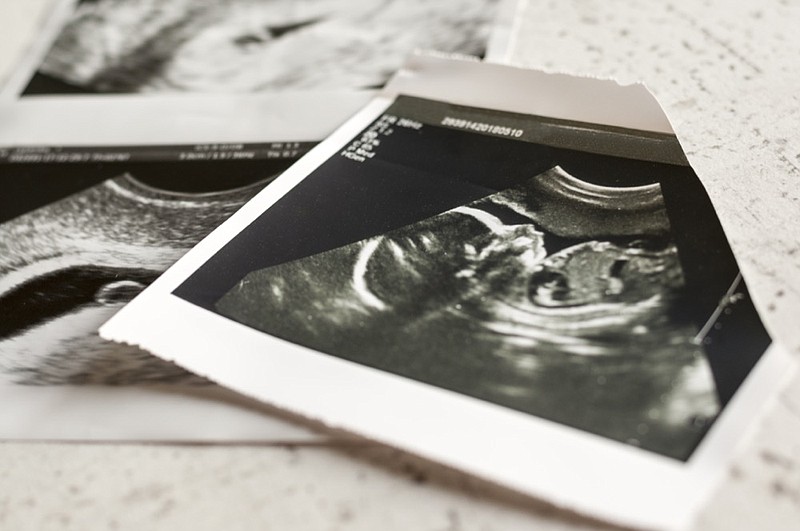In the decade since a U.S. Supreme Court ruling left Medicaid expansion decisions to individual states, healthcare advocates have tried - and failed - to get Tennessee's GOP-led General Assembly and Republican governors on board.
The court's decision last month ending the Constitutional right to abortion creates an even greater need for urgent action to expand healthcare access in Tennessee, particularly for women and their infants, said Kinika Young, director of health policy and equity for the Nashville-based Tennessee Justice Center.
"This is a moral crisis and a health crisis and one that challenges the nation to prevent already shocking racial health disparities from getting even worse in the wake of the Supreme Court decision," Young said.
Young and other advocates on Thursday urged Sen. Chuck Schumer, D-N.Y., Sen. Joe Manchin, D-W.Va., and President Joe Biden to reach an agreement on an economic package that would allow uninsured residents in Tennessee - and 11 other Medicaid-expansion holdout states - to purchase affordable insurance on the healthcare marketplace. That measure has so far stalled in the Senate.
"If they fail to act it will leave millions of people, including people who may become pregnant, with no foreseeable fix to the lack of coverage," Young said, citing data that finds 300,000 Tennesseans, including 31,000 women between the ages 18 and 49, have no affordable way to buy health insurance, while high rates of maternal and infant mortality, particularly among Black people, persist in the state.
The Supreme Court's abortion decision has had immediate repercussions in Tennessee, where Planned Parenthood and most other clinics have ceased providing abortions now that a six-week abortion ban has been allowed to take effect. Attorney General Herbert Slatery has said he expects Tennessee's trigger law, which criminalizes nearly all abortions in the state, to take effect by mid-August.
"To be clear, closing the coverage gap for people in Tennessee and other holdout states would not address the lack of abortion access, but it would help ensure that low-income people would have reliable affordable access to other forms of health care," Young said. "This access is important so that people can get contraception to help reduce unplanned pregnancies and pre-conception care to improve the odds of a healthy pregnancy if they become pregnant."
State Sen. London Lamar, D-Memphis, said many new births as a result of the abortion decision will likely occur among low-income families who already struggle to meet their basic needs, including healthcare.
"We're already not doing a good job of taking care of the pregnant women and babies we have, but now we are going to force even more unplanned pregnancies in the state," she said. "What you are going to see is an exacerbation of numbers of women who are at risk of dying or who will die and more infants who are at risk of dying or will die because they are not able to access this important health care service."
Lamar has spoken publicly about the loss of her own child at full term in 2019 when she suffered pregnancy complications from preeclampsia. Lamar's cousin died at eight months pregnant, along with her child, because "she believed it was wrong for her to choose abortion to save her own life," Lamar said Thursday.
"I want to challenge my Republican colleagues to think beyond your political ideologies and think about the lives of women that you're actually serving in this state and give them the opportunity to choose life," she said. "Give them the opportunity to choose motherhood. That's not something that you need to be choosing for them."
Pregnant women living in poverty are eligible for TennCare in Tennessee. Gov. Bill Lee - who is staunchly anti-abortion - noted after the Supreme Court's decision in Dobbs v. Jackson Women's Health Organization that the state has expanded post-natal care for them from 60 days to 12 months in an effort to improve outcomes.
But those benefits only begin once a pregnancy begins, said Dr. Kendra D. Hayslett, a Nashville ob-gyn. Hayslett cited Tennessee's high rates of infant and maternal mortality, along with high rates of pre-term births - problems exacerbated when people cannot access healthcare.
"People in this coverage gap often miss out on their pre-conception counseling, as well as early prenatal care," she said. "While every state, including Tennessee, does provide Medicaid coverage to pregnant people (living in poverty), the coverage does not start until people actually know they are pregnant and actually have to apply for Medicaid, which puts both the pregnant people and babies at risk."
Access, she said, is particularly problematic in rural communities, where prenatal care and hospitals may be a long drive away.
Separately, last month the Centers for Medicare and Medicaid Services signaled it could exert more control over TennCare's benefits and eligibility.
During the waning months of the Trump administration, Tennessee officials received approval to run TennCare under a block grant, trading fluctuating federal funding tied to enrollment levels for a fixed annual payment that gives state officials more latitude in how the program is run.
Negotiations on the Senate package remain ongoing, and no floor vote has yet been set.
Read more at TennesseeLookout.com.
